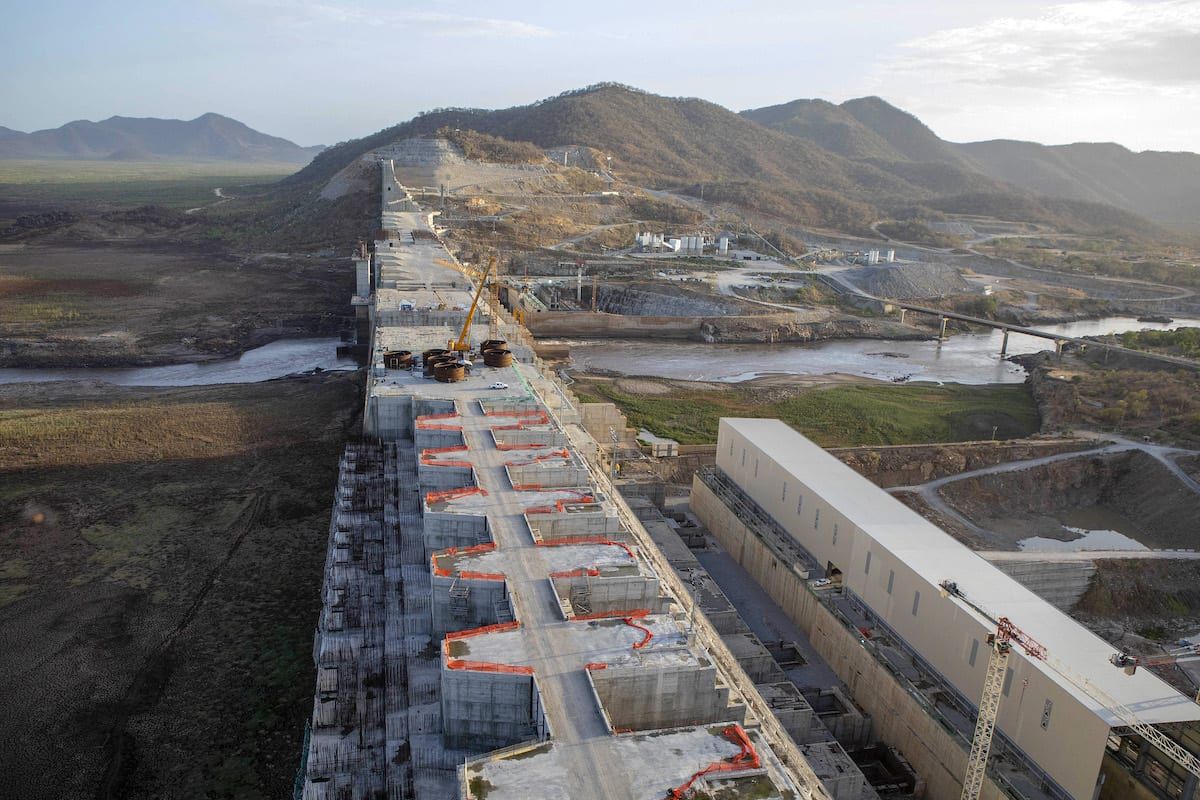In the field of civil engineering, contracts serve as the backbone of project management and execution. However, one of the most challenging issues that can arise is non-payment for services rendered. This article explores the multifaceted approaches to handle non-payment situations, from understanding the legal framework that governs civil engineering contracts to implementing preventive measures, and from employing effective communication strategies to pursuing legal remedies. We will also delve into real-world case studies to extract valuable lessons from past non-payment incidents. By addressing this complex topic, professionals in the civil engineering industry can better prepare and protect themselves against the financial risks associated with contract breaches.
Key Takeaways
- Comprehension of the legal framework is essential for identifying payment provisions and consequences of contract breaches in civil engineering.
- Implementing preventive measures such as thorough contract reviews and securing performance bonds can mitigate the risks of non-payment.
- Effective communication, including maintaining professionalism and proper documentation, is critical during instances of payment delays.
- Legal remedies like arbitration, litigation, and the use of mechanic’s liens provide avenues for recourse in the event of non-payment.
- Analyzing case studies of non-payment incidents offers valuable insights for improving contract practices and preventing future disputes.
Understanding the Legal Framework of Civil Engineering Contracts
Key Provisions Related to Payment
In the realm of civil engineering contracts, payment provisions form the financial backbone of the project. These clauses dictate the timeline, methods, and conditions under which payments must be made.
- Milestone Payments: Payments tied to the completion of specific project phases.
- Retention: A percentage of payment withheld until project completion to ensure quality.
- Advance Payment: Upfront funds to mobilize resources at the project’s outset.
Ensuring clarity in payment terms is crucial to avoid disputes and maintain cash flow.
Failure to adhere to these provisions can lead to project delays, strained relationships, and legal complications. It’s imperative for all parties to have a mutual understanding of the payment schedule, invoicing process, and remedies for non-payment.
Consequences of Breach of Contract
When a party fails to fulfill their payment obligations, the consequences can be severe. Contractual penalties may be imposed, including liquidated damages that are pre-agreed upon in the contract. This ensures a measure of predictability and security for the aggrieved party.
Termination of the contract is another potential consequence. This drastic step can halt project progress and necessitate the search for new contracting parties, leading to significant delays and increased costs.
- Legal action may ensue, often resulting in lengthy and costly litigation.
- The non-breaching party may seek to recover damages or enforce specific performance.
The key is to address non-payment issues promptly to avoid escalation and to protect the interests of all parties involved.
Dispute Resolution Mechanisms
When payment disputes arise, the path to resolution is paved by the contract’s dispute resolution clauses. Arbitration and mediation serve as cost-effective alternatives to traditional litigation, often leading to swifter settlements.
Mediation allows for a facilitated negotiation, aiming to reach a mutual agreement without a binding decision. In contrast, arbitration provides a binding resolution but is typically less formal and faster than court proceedings.
- Identify the dispute resolution method specified in the contract
- Engage a neutral third party as mediator or arbitrator
- Follow the outlined procedural steps for the chosen method
Effective dispute resolution mechanisms are essential for maintaining project momentum and preventing costly delays.
Clear, enforceable contract clauses are the backbone of successful debt recovery in construction projects. They ensure that payment schedules, dispute resolution processes, and legal compliance are unambiguous and actionable.
Preventive Measures to Mitigate Non-Payment Risks
Thorough Contract Review and Negotiation
A meticulous contract review is the first line of defense against non-payment. Ensure every clause is clear, particularly those concerning payment terms, milestones, and penalties for late payment. Negotiation is not just about the numbers; it’s about securing your interests with precision.
- Identify critical payment clauses
- Clarify terms and conditions
- Establish clear milestones
- Define penalties for delays
A robust contract sets the stage for smooth project execution and minimizes financial disputes.
Remember, a well-negotiated contract can save countless hours and resources later. It’s not just a formality; it’s a strategic tool for risk management. By diversifying clients and insisting on clear contracts, firms can shield themselves from the brunt of non-payment issues.
Performance Bonds and Guarantees
Performance bonds and guarantees serve as a safety net, ensuring project completion and financial compensation in case of non-payment. Secure your investment with these instruments, which act as a pledge from a third party to cover costs if the contractor fails to fulfill their obligations.
Performance bonds typically involve three parties: the project owner, the contractor, and the surety company. They provide a form of insurance that the work will be completed as per the contract terms. Guarantees, on the other hand, are commitments by the guarantor to assume responsibility for the contractor’s performance.
The presence of performance bonds and guarantees can significantly deter payment defaults and reinforce contractual commitments.
Here’s a quick rundown of the key differences:
- Performance Bond: A surety bond issued by an insurance company or bank to guarantee satisfactory completion of a project by a contractor.
- Guarantee: A legal commitment by a third party to fulfill the contractor’s obligations if they default.
Both tools are essential in mitigating the risks associated with non-payment and should be carefully considered during contract negotiations.
Regular Financial Monitoring
Regular financial monitoring is a cornerstone of risk management in civil engineering contracts. It ensures that payment flows align with project milestones and budget forecasts.
Cash flow projections should be updated regularly to reflect the current financial health of the project. This proactive approach allows for early detection of potential non-payment issues, enabling timely interventions.
- Review financial statements monthly
- Update cash flow projections quarterly
- Conduct budget-to-actual comparisons after each project phase
By maintaining a vigilant eye on the financial pulse of the project, parties can mitigate the risks associated with non-payment and maintain fiscal control.
Effective financial monitoring hinges on the use of robust accounting systems and adherence to stringent financial controls. These practices are not just about tracking dollars; they’re about safeguarding the project’s financial viability.
Effective Communication Strategies During Payment Delays
Maintaining Professionalism and Transparency
In the face of payment delays, it’s crucial to establish clear communication channels. Regular follow-ups and transparent dialogue about payment expectations set a professional tone. Use multiple channels to ensure messages are received and understood.
Transparency is not just about clarity, but also about honesty. Be upfront about the situation and potential consequences. This approach fosters trust and can prevent misunderstandings.
Keep communication lines open. A proactive stance can lead to quicker resolutions and maintain business relationships.
Remember, maintaining a professional demeanor is key. It helps in preserving long-term partnerships and paves the way for amicable solutions.
Negotiation Tactics to Facilitate Payment
Establish Clear Communication Channels: Ensure that there is a direct line of communication with the responsible party. Address issues promptly and professionally.
Flexibility in negotiation can lead to quicker resolutions. Consider offering payment plans or other compromises that still meet your bottom line.
- Identify mutual interests and common ground
- Propose creative solutions that benefit both parties
- Be prepared to walk away if terms become unfavorable
Remember, the goal is to secure payment while maintaining a positive working relationship. Persistence and patience often pay off.
Leverage Relationships: Utilize existing relationships to apply pressure indirectly. A respected mutual contact may influence the debtor to fulfill their obligations.
Documentation and Record Keeping
In the realm of civil engineering contracts, meticulous documentation is your safeguard. It’s not just about keeping records; it’s about creating a narrative that showcases the progression of work and the fulfillment of contractual obligations.
- Record all correspondence related to payment requests and follow-ups.
- Maintain detailed invoices and proof of work completion.
- Log any client communications, especially those addressing financial issues.
Documentation is the backbone of dispute resolution. It provides clear evidence that can support your position during negotiations or legal proceedings.
When payment delays occur, revisit your documentation before taking further steps. This ensures that any action, whether it’s proactive communication or legal recourse, is well-informed and justified. Remember to document these interactions as well, as they are part of the ongoing narrative of the project.
Legal Remedies for Non-Payment in Civil Engineering Projects
Initiating Arbitration or Litigation
When preventive measures fail and communication breaks down, initiating arbitration or litigation becomes necessary. This step is a formal approach to resolving disputes and enforcing contract terms.
Arbitration offers a private resolution process, often faster and less formal than litigation. However, it’s binding and can be costly. Litigation, on the other hand, takes place in public courts and can be a lengthy process. Both avenues require careful consideration of time, costs, and potential outcomes.
-
Arbitration Steps:
- Notice of Intent to Arbitrate
- Selection of Arbitrator(s)
- Exchange of Pleadings
- Hearing and Deliberation
- Award and Enforcement
-
Litigation Phases:
- Filing a Complaint
- Discovery Process
- Trial
- Judgment
- Appeals (if necessary)
The choice between arbitration and litigation should align with the project’s legal remedies for non-payment and the desired speed of resolution.
Mechanic’s Liens and Other Security Interests
Mechanic’s liens provide a powerful legal tool for contractors to secure payment. By placing a lien on the property where work was performed, contractors can claim a right to the property equivalent to the unpaid amount. Timely action is crucial; lien filing deadlines vary by jurisdiction but are typically strict.
Security interests like mechanic’s liens prioritize the contractor’s claim over other creditors, especially in cases of client insolvency. It’s essential to understand the prerequisites for filing a lien, which may include preliminary notice to the property owner and a formal lien statement.
- Determine eligibility and requirements for a lien
- Send preliminary notice if required
- File the lien within the statutory deadline
- Enforce the lien through foreclosure if necessary
Ensuring the correct procedure is followed can prevent the lien from being contested or deemed invalid. Proper documentation and adherence to legal formalities are non-negotiable.
Enforcement of Judgments and Awards
Once a judgment or award is secured, the real challenge begins: enforcement. Without effective enforcement, a judgment is merely a piece of paper. The process typically involves several steps:
- Identifying the debtor’s assets
- Obtaining a court order for asset seizure
- Coordinating with law enforcement for asset recovery
It’s essential to act swiftly to prevent the debtor from dissipating assets. A proactive approach ensures that the awarded sums are actually collected.
Enforcement strategies must be tailored to the specifics of each case, considering the jurisdiction and nature of the debtor’s assets.
Remember, clear payment terms and proactive contract management are crucial for cash flow. Mechanic’s liens and legal remedies protect against non-payment. Timely action is key to recovering dues.
Case Studies: Lessons Learned from Non-Payment Incidents
Analyzing Successful Recovery Efforts
Successful recovery of payments in civil engineering hinges on proactive strategies. Timely identification of potential non-payment risks allows for swift intervention. Firms that excel in recovering dues often employ a multifaceted approach, combining legal acumen with negotiation skills.
- Early engagement with the client to understand payment delays
- Utilization of mediation services to reach amicable solutions
- Enforcement of contract terms through legal channels when necessary
Persistence in follow-up actions is key to successful recovery.
Case studies reveal that firms with structured recovery processes fare better. They set clear milestones for escalation and have predefined protocols for each stage of recovery. This systematic approach minimizes losses and ensures that efforts are not wasted on unproductive tactics.
Common Pitfalls and How to Avoid Them
In the realm of civil engineering contracts, non-payment issues often stem from common oversights. Avoid complacency in contract management; it’s a frequent misstep that leads to financial woes. Ensure vigilance in every project phase to preempt payment delays.
- Misunderstanding contract terms can lead to disputes. Clarify ambiguities before signing.
- Underestimating the importance of detailed documentation. Keep comprehensive records from the start.
- Neglecting to communicate changes in project scope or cost. Always update stakeholders promptly.
Proactive risk assessment is crucial. Regularly review financial health and project milestones to stay ahead of potential payment issues.
By learning from past incidents, firms can refine their approach to contract drafting and enforcement. This proactive stance minimizes the risk of non-payment and strengthens the company’s financial resilience.
Adapting Contract Practices for Future Projects
In the wake of non-payment incidents, adapting contract practices is crucial for future project security. Incorporate lessons learned into new contracts to build resilience against financial risks.
- Review previous contracts for weaknesses
- Update payment terms to reflect current industry standards
- Include clear mechanisms for dispute resolution
Flexibility in contract design allows for adjustments in response to evolving project landscapes. Ensure that new contracts are living documents, amenable to amendments that protect all parties involved.
Embrace proactive contract management to minimize the likelihood of non-payment scenarios.
By refining contract practices, civil engineering firms can safeguard their interests and maintain robust business operations.
Dive into our comprehensive ‘Case Studies: Lessons Learned from Non-Payment Incidents’ to uncover the pivotal insights and strategies that have helped businesses in the Construction Sector overcome financial hurdles. Each case study is a testament to the resilience and adaptability necessary to navigate the complexities of debt recovery. Don’t let unpaid debts derail your company’s growth—visit Debt Collectors International (DCI) today to learn how our specialized services can support your financial stability. Take the first step towards securing your assets by exploring our case studies now.
Frequently Asked Questions
What are the key provisions related to payment in civil engineering contracts?
Key provisions typically include payment terms, schedules, invoicing procedures, and conditions for final payment. They may also address progress payments, retainage, and mechanisms for adjusting payment due to changes in the scope of work.
What can happen if there is a breach of contract due to non-payment?
Consequences can include termination of the contract, legal action for breach of contract, claims for damages, and enforcement of any security interests like mechanic’s liens. The non-breaching party may also seek interest on overdue payments.
How can disputes over non-payment be resolved?
Dispute resolution mechanisms in civil engineering contracts may include negotiation, mediation, arbitration, or litigation. The contract will typically specify the agreed method for resolving such disputes.
What are some preventive measures to mitigate non-payment risks?
Preventive measures can include conducting a thorough contract review and negotiation, securing performance bonds and guarantees, and implementing regular financial monitoring throughout the project’s duration.
How should communication be handled during payment delays?
Maintain professionalism and transparency when communicating with the party responsible for payment. Clearly document all communication, attempt to negotiate a resolution, and keep meticulous records of all correspondence and agreements.
What legal remedies are available for non-payment in civil engineering projects?
Legal remedies can include initiating arbitration or litigation, filing mechanic’s liens or other security interests against the property, and pursuing the enforcement of judgments and awards to recover unpaid amounts.




